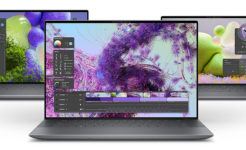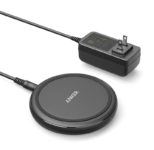
Intel Skylake, Kaby and Xeon Can Bring Down Your System
The users of the Linux-based Debian OS, have discovered some unpleasant truthes about the 6th and the 7th generations of Intel processors. The issue relates to the CPU microcode. The models with the enabled hyper-threading, when triggered can cause unpredictable system behavior and spurious errors, such as application and system misbehavior, data corruption, and data loss. This defect is hard to spot and so is the software affected. That’s why all the systems, laptops and ultra-books which feature the CPUs manufactured after 2015, are in danger. Including the soon-to-arrive iMacs Pro!

http://sm.pcmag.com/pcmag_uk/guide/h/how-to-dis/how-to-disable-hyperthreading_mpvs.jpg
Mark Shinwell, one of the Intel microcode developers, confirmed the issue that something goes wrong when hyper-threading mode is on. This fact can ruin the sales of all the new computers of 2016 and 2017 and some systems of 2015; because, the earliest models of these unhappy CPUs arrived in September of 2015. If you had for instance, a custom-build system around this time, you fit the description.
LEARN WHERE YOU STAND
There are two ways out: Upgrading the microcode, or killing the hyper-threading mode in BIOS\UEFI.
Stay calm dear users, we’ve found the guide for you.
WHAT CPU YOU’VE GOT
Your first move is to learn what CPU you’ve got aboard your system.
- Read the specifications to your notebook or desktop.
- If you have a MacBook, an iMac or a Mac, click the Apple icon in the top left corner of the navigation/menu bar. Pick About This Mac in a drop-down menu. Choose the tab Overview in the window that’ll open.
- If you have a Windows 10 laptop or a desktop, open the Search window (hit the magnifying glass icon in the taskbar). Type in msinfo32 and hit the Enter.
- Copy your CPU name and code and Google it.
- Copy your motherboard name and Google it.
To make it easier for you, we will leave the links to the list of CPUs below:
http://ark.intel.com/products/codename/37572/Skylake
https://ark.intel.com/products/codename/82879/Kaby-Lake
RESPOND TO THE ISSUE
If the result is positive, you should immediately disable hyper-threading in the BIOS/UEFI configuration. This is where you need the name of the motherboard. You should contact either your system, or your motherboard manufacturer.
- Contact your manufacturer’s tech support and ask for guidelines to disable the hyper-threading in the BIOS/UEFI configuration. The manuals vary from model to model, so we can’t be of any help here.
- If you are a Kaby Lake owner, ask if they have “Intel processor errata KBL095, KBW095 or the similar one for my Kaby Lake processor”.
- If you are a Skylake owner, ask if they have “Intel erratum SKW144, SKL150, SKX150, SKZ7, or the similar one for my Skylake processor”.
- If they have the patch, download it and install it. Don’t hesitate to ask the tech support for the most detailed instructions possible.
- AFTER you have installed the patch, then you may enable the hyper-threading in BIOS/UEFI.
CONCLUSION ABOUT KABY LAKE AND SKYLAKE USERS
The Kaby Lake owners are luckier, because the microcode updates that fix this issue (or the beta versions of those) are currently available to system vendors. The patches for Skylake CPUs are a bit late. If you doubt your skills and knowledge, find a computer repairing firm in your location and ask for help.
Disabling the hyper-threading won’t cripple your system performance. The multitasking will slow down a bit, but if you aren’t in a hurry to render an HD 4k video you probably won’t notice. Besides, we’re sure that Apple and other computer companies are already aware of the issue, and will offer computers with the already upgraded BIOS.






Facebook
Twitter
RSS